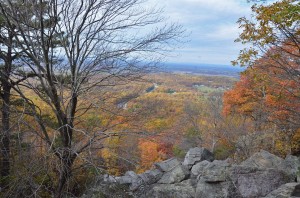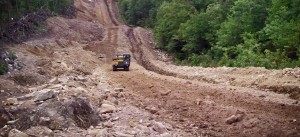Last Saturday, Lovettsville residents and citizens from across Loudoun County, indeed across Virginia and other states as close as Maryland and as far away as Georgia, traveled to Round Hill to celebrate the Appalachian Trail.
This time it was not about the toxic fracking gas pipelines that are crossing and compromising and desecrating the trail with erosion and pollution.
There was only a hint of the EQT and Nextra’s proposed 300-mile $3.2-Billion Mountain Valley Pipeline (MVP), a pipe almost four feet in diameter, carrying dangerous odorless fracked gas from West Virginia that threatens the trail and the environment.
There was no talk about how there was a taking of the land by eminent domain, nor the legitimate complaints about the proposed pipe’s adverse effects including air pollution, soil erosion, groundwater contamination, terrible noise levels, lowered property values, and possible onsite accidents including gas explosions like has already occurred in Appomattox, Virginia.
No one talked about how it may destroy once and forever the natural view shed along 100 miles of the scenic Appalachian Trail, including Angels Rest, Kelly Knob, Rice Fields and Dragons Tooth — among the most visited and photographed locations on the entire trail that extends from Georgia to Maine.
The talk at the tented booths was instead about the joy of the trail.
One and all were invited to Round Hill’s B Chord Brewing in the open air to pass on what they’d learned from the trail, that nothing can prepare you to walk the distance, the varying time it took to go the distance.
There were the rocks on the trail, the bears, the tents and bed rolls they took, the food they carried and ate, the ticks they avoided, the amazing sights they saw and photographed.
They talked about the weight they carried on their back, the moving community of hikers traveling across the several states from Georgia to Maine that helped one another.
They talked about how they did it, what tools helped them to know the weight they could and should carry, and how to calculate their needs, and what was for many, the first thing they described, and were asked, was the why of it all, what prompted this amazing hike.
What prompts any one to march across an expanse of America, and when do you do that, at what age and under what circumstances, and is it solitary or with a friend, or a spouse, and how does that work out?
The AT veterans, it was obvious, were informing the curious, each edging up to this amazing challenge, in his or her own way, just on the verge of commitment, if they didn’t already have a launch date.
They were mostly accomplished hikers and outdoors enthusiasts who had done some long hiking and just wanted to know more to do even more.
The AT starts in Springer Mountain in Georgia and ends at Mount Katahdin in Maine.
No less than Henry David Thoreau left behind his Walden Pond in Massachusetts to travel in the north Maine woods and to make his way up to the pinnacle of Mount Katahdin.
The Penobscot Indians guided Thoreau into the “backwoods of Maine.”
While many in his time, and our own, thought such efforts were about the conquest of nature, Thoreau wrote “[i]n wilderness is the preservation of the world.”
Thoreau decried, “the mission of men there seems to be, like so many busy demons, to drive the forest out of the country.”
John Muir encouraged one and all to “[c]limb the mountains and get their good tidings. Nature’s peace will flow into you as sunshine flows into trees.”
These naturalists informed the devotion of those at the celebration.
Marie said the AT “changed my life.”
“I married into the dream,” she said, “I married a through hiker. I wasn’t like that. I hadn’t hiked. I was asked if that wasn’t hard on a marriage. I hadn’t been apart from my husband for 5 to 6 months. We couldn’t return to our old life. So, we signed up to manage a hospitality station along the way of the AT.”
There were various responses, an English major had no real alternatives, “no one throwing jobs my way,” another was out for a redemptive experience, another said it was a product of “irrational persistence” when he first walked the trail at 65.
There was this impulse to test and grow not always understood but operating just the same.
Historian Frederick Jackson Turner said “…at the frontier the environment is at first too strong for the man.”
In our modern age, the AT is perhaps one way to test what remains of that frontier character.



